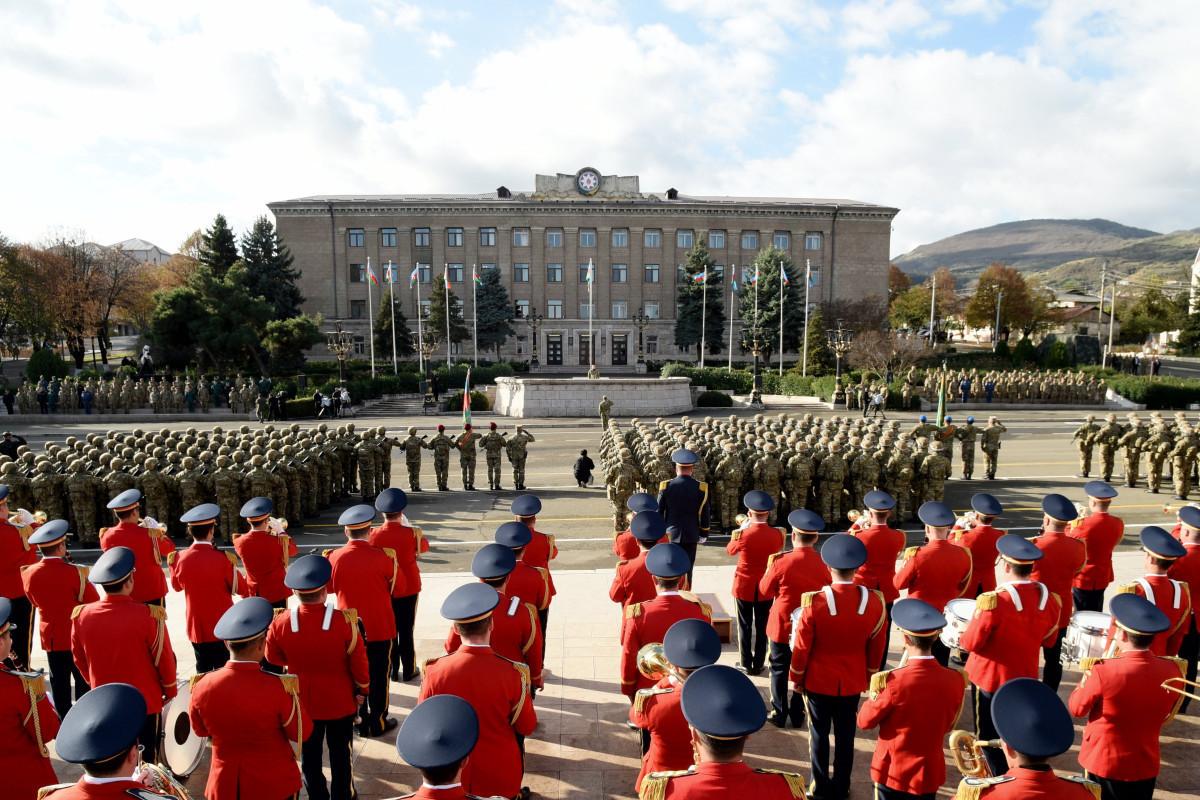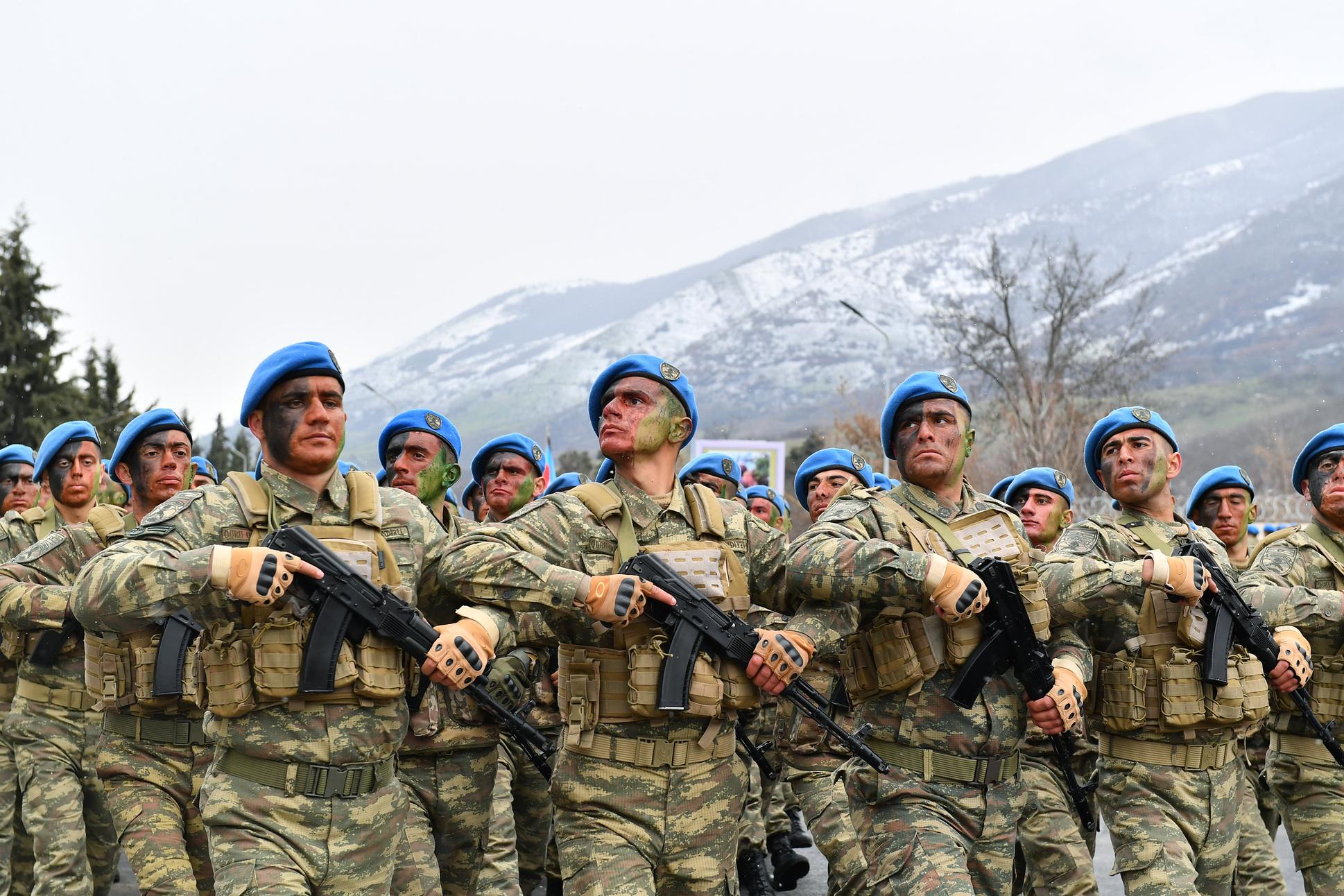US intel community goads Armenia to wreck tenuous peace in South Caucasus United Spies of America
There seems to be a push for Azerbaijan to attack Armenia, with Western media, experts, and some officials discussing it for months. Recently, the intelligence community finally got on board. In February of this year, the US intelligence community released its annual threat assessment. This report reflects information not only on countries confronting the United States (China, Russia, Iran, and North Korea) but also about all areas of the world where armed conflicts are taking place or could occur in the future.
Two sections of this report deal with the Armenian-Azerbaijani conflict. First, it is briefly mentioned in the Russia section. The South Caucasus is discussed indirectly, through the prism of Russia's geopolitical position. Let's get familiar with this section.
"The renewed efforts of Armenia, Moldova, and some Central Asian states to seek alternative partners highlight how the war has hurt Moscow’s influence, even in the post-Soviet space. Russia’s unwillingness to expend the resources and political capital to prevent Azerbaijan from reacquiring Nagorno-Karabakh from ethnic Armenians through a military offensive in September 2023 underscores how Moscow’s war in Ukraine has weakened its role as a regional security arbiter," the report says.
Well, there is not much to quibble about. However, one important detail is missing: the operation wasn't against ethnic Armenians but against remnants of the Armenian army entrenched in Azerbaijan's Karabakh region. In terms of weakening Moscow's role, this is more or less fair, with the only correction being that in 2020 when Azerbaijan had already broken the thirty-year status quo and the regional security system supported by Russia, the latter had not yet plunged headlong into the conflict in Ukraine. A curious omission on the part of US intelligence. But let's move on.
The next and final mention of the Armenian-Azerbaijani confrontation is in the "Conflicts and Instability" section, under "Potential Interstate Conflicts". Here the report's authors were more verbose. The opening paragraph of this section is: "Relations between Armenia and Azerbaijan are likely to remain tense, but Azerbaijan’s retaking of Nagorno-Karabakh (N-K) has reduced volatility, and a military confrontation probably would be limited in duration and intensity."

American intelligence is in no doubt about the confrontation. One could, of course, blame the Americans for being so categorical, but in the interests of fairness, the following paragraphs contain an attempt, however feeble, to explain the inevitability of the conflict.
The authors of the report go on to say: "Nevertheless, the lack of a bilateral peace treaty, the proximity of their military forces, the lack of a cease-fire enforcement mechanism, and Azerbaijan’s readiness to use calibrated military pressure to advance its goals in talks with Armenia will remain."
Although, as you can see, this sentence also contains more unsubstantiated accusations against Azerbaijan in a hypothetical attempt to take military action against Armenia than it does an attempt to explain it.
The next thesis, however, contains Azerbaijan's motive for aggression, and not just one, but two. But that does not make it any clearer. Let's get to know them: "Moreover, the transition of N-K governance from ethnic Armenians to Azerbaijanis and Azerbaijan’s demand for access to a land corridor linking Azerbaijan to its exclave will elevate the risk of armed confrontation."
Two reasons for a future armed confrontation are given. The first reason is called "the transition of power in Nagorno-Karabakh from the ethnic Armenians to the Azerbaijanis". Here we would like to ask the American intelligence officers whether this idea does not contradict one of their previous theses, which we quoted above and which we would like to quote again: "the return of Nagorno-Karabakh by Azerbaijan has reduced volatility"?
Concluding the Armenian-Azerbaijani confrontation section, the Americans again confused things: "In September 2023, Azerbaijan initiated a military operation that led to the defeat of the N-K Self-Defense Force and the surrender of the de facto N-K authorities. The rapid exodus of most of the region’s ethnic Armenian population and the planned self-dissolution of the government allowed Baku to advance plans to integrate the region with Azerbaijan, effectively removing this longstanding issue from the bilateral peace agenda."
It is puzzling that the US official bodies call the puppet regime "Nagorno-Karabakh authorities", while they they label the Armenian army stuck on Azerbaijani territory and the separatist gangs joining it as "self-defence forces". Thus, the US government questions the territorial integrity of Azerbaijan and its sovereignty over the Karabakh region.
Having noted this fact, let us return to the second reason given in the report for the hypothetical war - "Baku's demand for a land corridor connecting Azerbaijan with its exclave". Looking at the issue from a legal standpoint, Azerbaijan has the right to demand Armenia's commitment to open a road to Nakhchivan. However, the leadership of Azerbaijan has repeatedly stated that it will not attack Armenia and will use alternative routes if necessary, given Yerevan's refusal to provide a corridor. This was demonstrated by the agreement made with Iran and the commencement of construction of a road to Nakhchivan through the territory of the Islamic Republic of Iran.
In this way, the American intelligence services continue to promote the false narrative that Azerbaijan is allegedly planning to unleash a war against Armenia. Moreover, one gets the impression that they are trying to make even such a move attractive for us - recall the vocabulary of the report: "military confrontation is likely to be limited in duration and intensity", i.e. the conflict will be short and Azerbaijan will get its way.

Obviously, contrary to the "promises" of the American secret services, the Western curators of Armenia are preparing this country for a large-scale provocation against Azerbaijan so that our country would be forced to react and get involved in a long conflict. Incidentally, we have already reported in our previous articles that the Armenian authorities and their Western string-pullers are preparing a military provocation for the seizure of the territories that will be under Azerbaijani control as a result of the clashes in 2021 and 2022.
Azerbaijan is determined to protect its soldiers, civilians, and territory from any provocation and will respond in a manner that will make Armenia regret their actions. The response will be quick, and decisive and will go against the wishes of the US intelligence community.
P.S.: The United States Intelligence Community is a term used to refer to the 17 different US government agencies. These agencies are responsible for collecting information and carrying out intelligence activities that serve the interests of the United States. However, it is difficult to ignore the fact that a publicly available intelligence report may not be all that informative. This is because such reports are primarily used to shape public opinion inside and outside the US rather than to formulate US government policy. In this piece, we have attempted to demonstrate that the report is, in essence, a media product.








